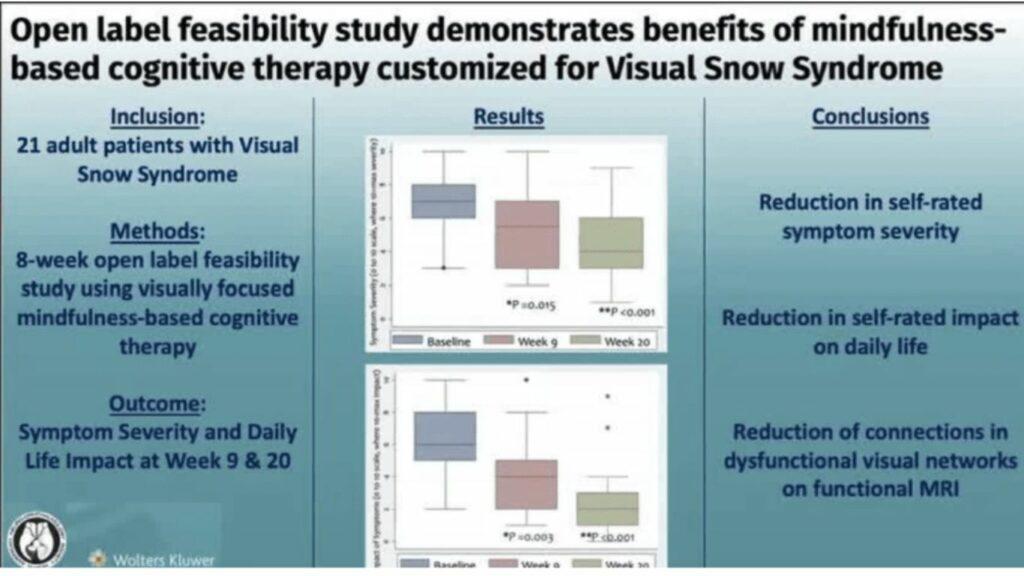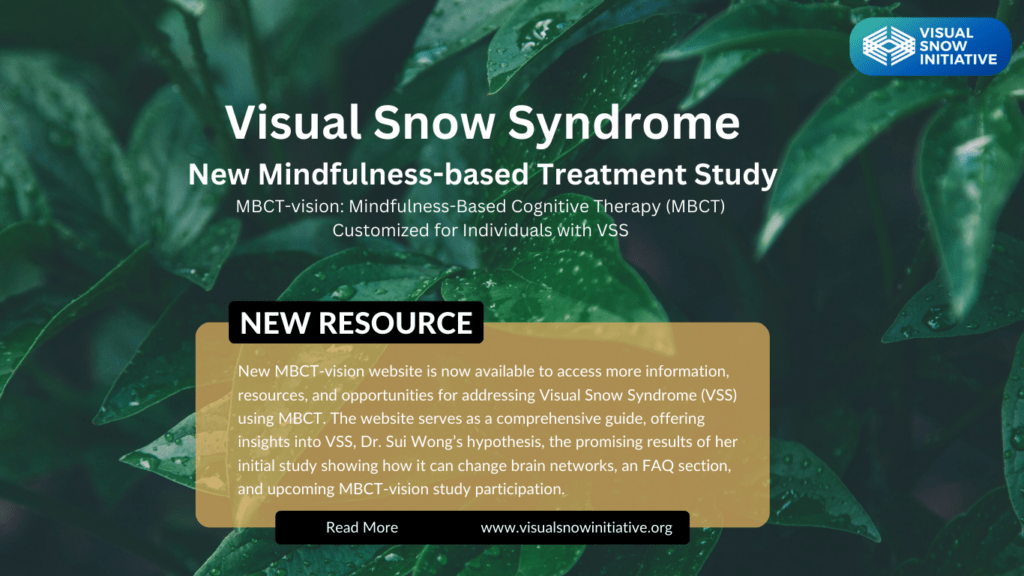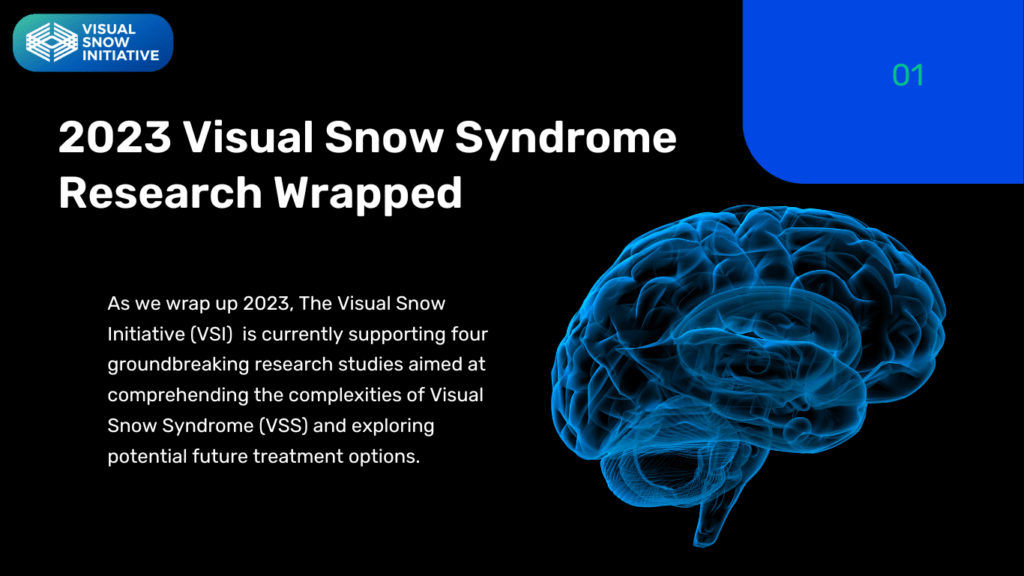Mindfulness-Based Cognitive Therapy (MBCT) for Visual Snow Syndrome
Welcome to our guide on Mindfulness-Based Cognitive Therapy (MBCT) for Visual Snow Syndrome (VSS). This guide will provide you with information about MBCT, including what it is and how it is being studied as an effective treatment option for VSS.

What is MBCT?
Brief Summary: MBCT for Managing VSS
Mindfulness-Based Cognitive Therapy (MBCT) offers a noninvasive and multifaceted approach to managing Visual Snow Syndrome (VSS) by modulating dysfunctional visual networks in the brain to help improve the visual and non-visual symptoms of VSS, promoting neuroplasticity, regulating neurotransmitter activity, managing discomfort associated with sensory disturbances, improving emotional regulation, alleviating pain, encouraging neural changes linked to enhancements in immune function, as well as reducing stress, anxiety, depression, depersonalization, derealization, and brain fog. Neuroimaging studies suggest that VSS is linked to abnormal hyperexcitability in the visual cortex, neural signals between the eyes and brain, as well as other sensory processing areas of the brain. This hyperactivity can lead to a range of symptoms and worsen sensory disturbances. Research also suggests the biological basis of VSS is associated with disruptions in neurotransmitters like glutamate and serotonin. MBCT can help promote new neural connections, calm the body’s nervous system and stress response, enhance sensory processing, and regulate neurotransmitters like serotonin, which, along with glutamate, which are crucial to managing VSS. In recent studies, MBCT has been explored as a treatment option specifically for VSS. Research indicates that MBCT can help effectively address neurological conditions, such as VSS, through its impact on neurotransmitters and other interconnected physiological mechanisms, as well as by inducing neuroplasticity. MBCT can initiate neuroplastic functional changes in the brain, promoting the growth of new neural connections and rewiring existing ones. Additionally, mindfulness-based interventions can help reduce the activation of the body’s stress response system. This result can lead to lower levels of stress hormones, such as cortisol, which have been implicated in neurodegenerative processes and cognitive decline. Moreover, this intervention may help regulate the functioning of the limbic system and have effect on the activation of the body’s endogenous opioid system, allowing individuals to process sensations without becoming overwhelmed by them. This is an important consideration when managing sensory-processing disorders that can affect cognition, such as VSS.Research on MBCT for VSS
MBCT has been studied and applied by Neurologist, Neuro-ophthalmologist, Consultant for St Thomas’ NHS Foundation Trust and Moorfields Private Eye Hospital, and Vice President of the UK Neuro-Ophthalmology Society, Dr. Sui Wong, to treat both the visual and non-visual symptoms of VSS.
Dr. Wong’s research entails functional MRI (fMRI) scans of the brain before and after MBCT, as well as VSS patient reports. Dr. Wong’s feasibility study, published in the Journal of Neuro-Ophthalmology, demonstrated that her MBCT regimen, can reduce both visual and non-visual symptoms associated with VSS and improve quality of life. fMRI scans revealed significant measurable changes in brain activity, indicating that MBCT can modulate the dysfunctional visual networks associated with VSS. This objective evidence was reinforced by study participant reports. The study’s findings suggest that MBCT not only alleviates symptoms but also brings about material changes in the underlying neurological condition.
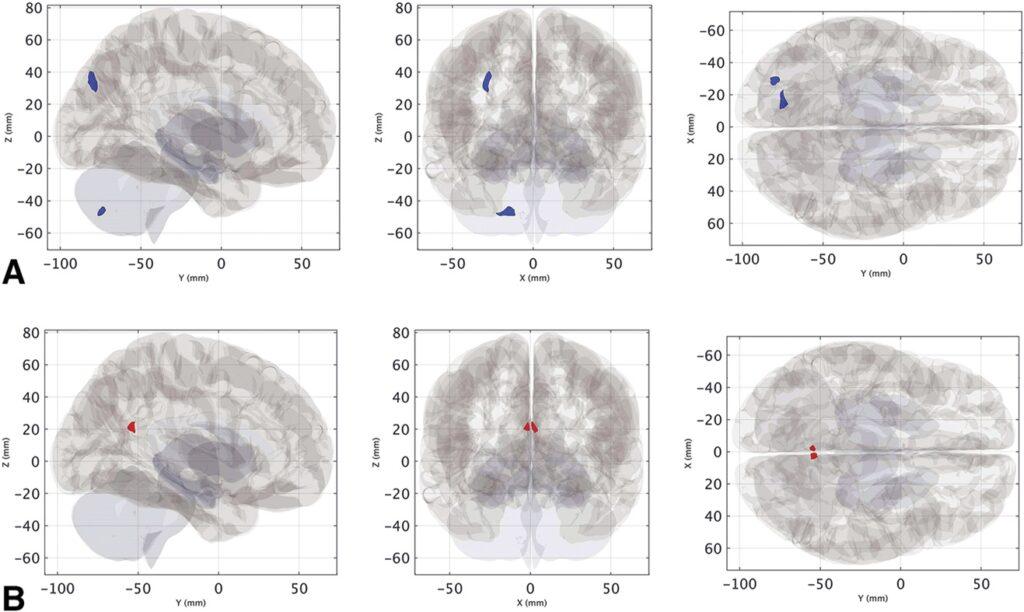


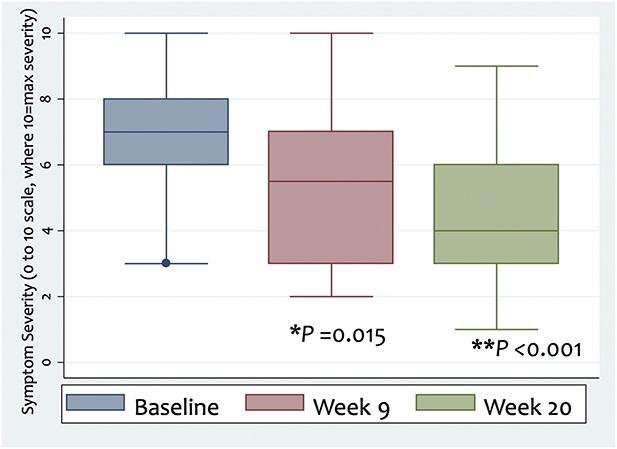
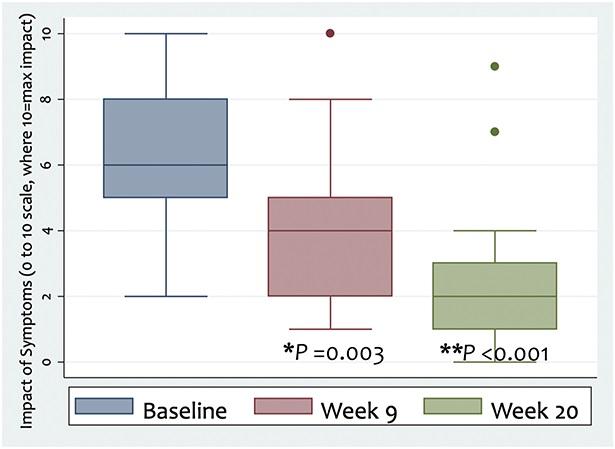
The Science of MBCT for VSS
VSS is associated with functional connectivity dysregulation of visual networks, meaning that there is a disruption in the brain networks that involve the visual pathway. The neurological network dysfunction of VSS affects the visual, attentional, and salience networks. The salience network and default mode networks are closely associated, where the default mode network reflects the baseline state of connectivity. MBCT intervention has been shown to modulate these networks. Similar changes have been observed with the application of MBCT interventions for tinnitus, which is often associated with VSS.
Based on previous research demonstrating that mindfulness interventions can alter brain pathways, Dr. Wong, the principal investigator of MBCT intervention for VSS, used MBCT to target and modulate these dysfunctional visual networks. In addition to areas standardly addressed through MBCT, her findings also encompassed potential improvements in visual disturbances, such as visual snow/static, afterimages, photophobia, trailing phenomenon, and visual aura.
Objective fMRI measures demonstrated modulation of visual network areas within the brain, suggesting a material change in the underlying condition. This included both visual and extravisual default mode networks within the brain. Empowered with skill sets that enable self-efficacy for managing their condition, patients also reported improvements in both the severity and impact of their VSS symptoms. Moreover, findings supported that the alteration of visual network functional connectivity within visual areas and association networks may underpin disruptions between the integration of internally generated visual information and the processing of salient environmental stimuli, resulting in a constant “noise-like” perception.
MBCT modulate the autonomic nervous system (ANS) by shifting it from an overactive “fight or flight” state to a more balanced condition. This modulation reduces nervous system excitability and alleviates symptoms such as visual disturbances, sensory overload, and emotional distress. Neuroimaging studies indicate that mindfulness decreases amygdala activity, which regulates stress, and enhances prefrontal cortex connectivity, improving executive functions and emotional regulation. Consequently, these practices provide an effective method for managing neurological and neuro-ophthalmological conditions like VSS, thereby improving patients’ quality of life.
For more information about MBCT for VSS, please view the sections below.

Oxford Mindfulness App: Access Mindfulness for Visual Snow Syndrome


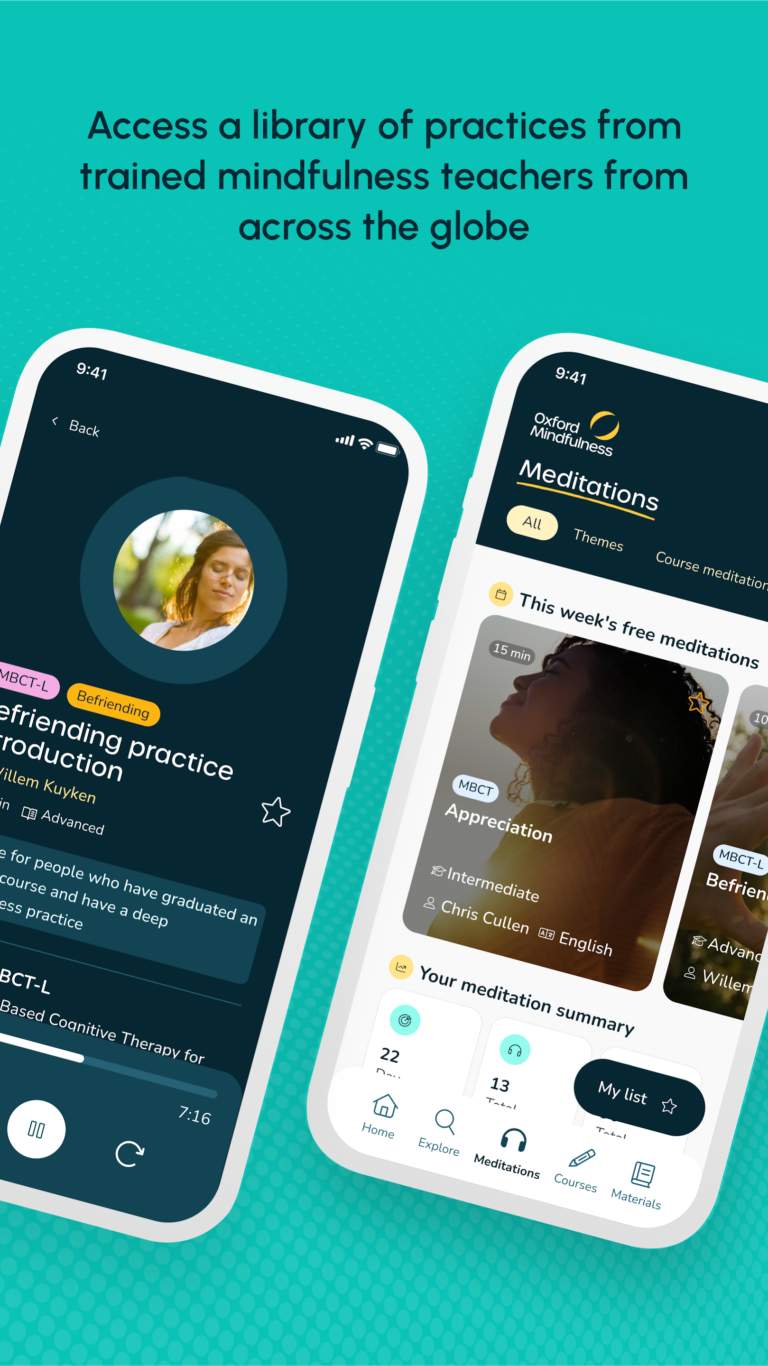
The Visual Snow Initiative (VSI) has partnered with the Oxford Mindfulness Foundation to offer Mindfulness-Based Cognitive Therapy (MBCT), specifically tailored for individuals with Visual Snow Syndrome (VSS), through the new Oxford Mindfulness App.
Available within the app, this innovative module titled Mindfulness for Visual Snow Syndrome, is derived from Dr. Sui Wong’s MBCT protocol for Visual Snow Syndrome (VSS), which itself is grounded in the mindfulness curriculum developed by the University of Oxford through Oxford Mindfulness.
To make MBCT globally accessible to everyone affected by the Visual Snow Syndrome, VSI has ensured that the app’s VSS-specific module, Mindfulness for Visual Snow Syndrome, is completely free and available in 170 countries.
It is important to the Visual Snow Initiative team to ensure that cost, time constraints, or a lack of qualified local providers are not barriers to care. While we work towards a cure, advocating for and creating access to various types of treatment options, such as MBCT, are crucial so that patients, who have reported VSS is negatively impacting them, can experience relief from symptoms and/or improved quality of life.
Learn more about the app
Hear more about the app from VSI’s Founder
Current and Future MBCT for VSS Projects
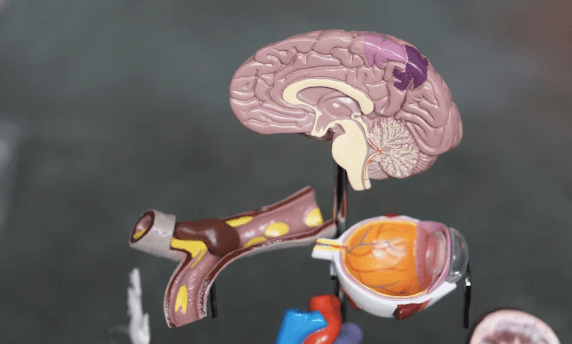
Additional Studies
Dr. Wong presented she and her team’s findings at the North American Neuro-Ophthalmology Society (NANOS) Conference. The study, “Visual Snow Syndrome Improves With Modulation of Resting-State Functional MRI Connectivity After Mindfulness-Based Cognitive Therapy: An Open-Label Feasibility Study”, has been be published in the Journal of Neuro-Ophthalmology. Gaining strong support the neuroscience community and VSS expert Dr. Owen White, these promising results demonstrated the necessity for further investigation into MBCT and its benefits for VSS patients.
Expanding upon Dr. Wong’s first study, VSI has now funded a second, larger Randomized Control Trial (RCT) that will test how MBCT can improve the brain’s visual network to filter out the unwanted images to improve or resolve symptoms of VSS. Dr. Wong will also be taking blood samples from study participants that could potentially reveal anomalies in the VSS patient population. For additional information, please visit Dr. Wong’s MBCT-vision website (link below) or contact: research@MBCT-vision.co.uk
Collaborative Efforts
Partially-funded by the Visual Snow Initiative (VSI) and conducted in collaboration with Guy’s and St Thomas’ NHS Foundation, Dr. Wong and her team’s research marks the first-ever investigation of an MBCT intervention and its associated brain functional modifications within the VSS patient population.
The MBCT regimen used in Dr. Wong’s research is based on the Oxford Mindfulness curriculum. VSI is also working with Oxford Mindfulness to make mindfulness-based interventions and related courses globally accessible for individuals with VSS.
Personal Insights on Mindfulness-Based Cognitive Therapy for Visual Snow Syndrome
Meet the Team
Dr. Sui Wong, Neurologist, Neuro-ophthalmologist, Consultant for St Thomas’ NHS Foundation Trust and Moorfields Private Eye Hospital, and Vice President of the UK Neuro-Ophthalmology Society, has conducted the first-ever research study in which MBCT was utilized as a treatment for VSS.
Email: research@MBCT-vision.co.uk
Additional Resources
Note: Providers may customize treatment plans based on your VSS symptoms, preferences, medical history, and in-office assessment results. Outcomes can vary depending on these factors.
This information is provided for educational purposes only, to support individuals in making informed decisions about their care in consultation with a qualified medical professional familiar with VSS.
For more research-supported treatment options for Visual Snow Syndrome (VSS) symptoms—both noninvasive and pharmacological—please return to the following page: Treating Visual Snow
Support Visual Snow Syndrome Research
All donations to the Visual Snow Initiative go directly to Visual Snow Syndrome (VSS) research.
Your tax-deductible contribution ensures that global research will continue and makes a positive difference in the lives of people affected by VSS.





